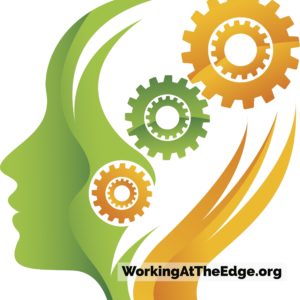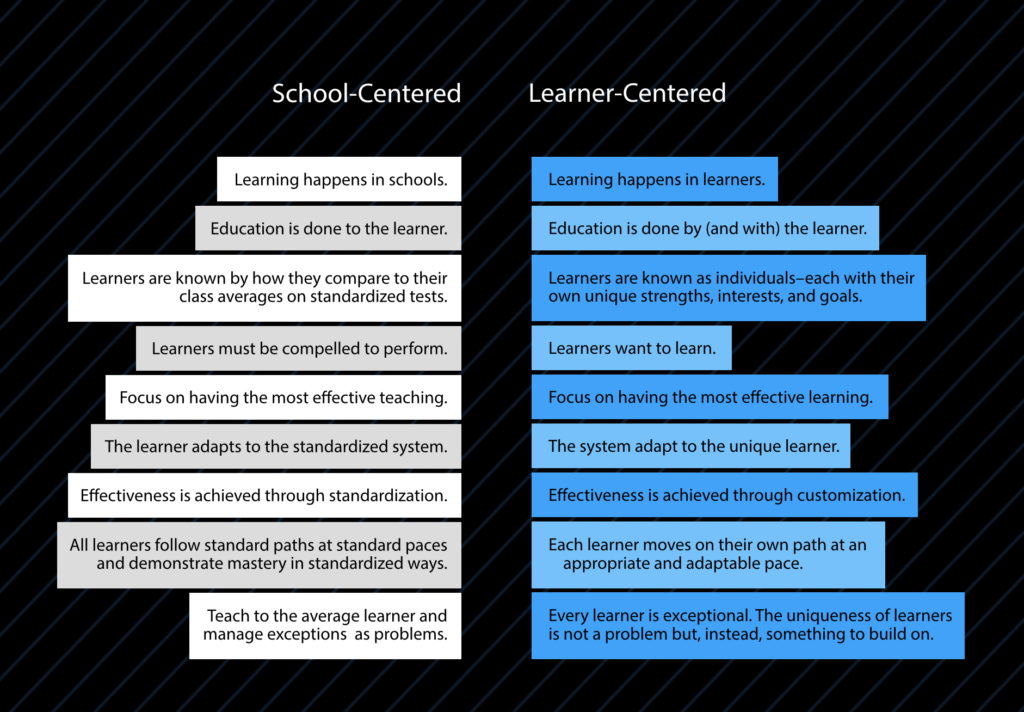 I have been at a number of workshops and conferences lately where I have been inwardly critical about the plane on which the conversation about transformation has been occurring. These conversations have more regularly focused first on teaching and technology. They rarely focus on learning first. I propose this sequence is flawed and cannot lead to systemic transformation.
I have been at a number of workshops and conferences lately where I have been inwardly critical about the plane on which the conversation about transformation has been occurring. These conversations have more regularly focused first on teaching and technology. They rarely focus on learning first. I propose this sequence is flawed and cannot lead to systemic transformation.
Circumventing the learning conversation (consciously or not) and jumping to a focus on teaching (pedagogy) and/or technology is like, in my opinion, building a house on quicksand. Our mental models of learning are often subconscious and aligned with a school-centered paradigm. Until we spend the time and energy to interrogate our beliefs about learning, any transformation work will reinforce our traditional models of school and will not lead to a true transformation of our classrooms, schools and districts. Build transformation on a strong foundation of learning. Not teaching. Not technology. I’m not proposing teaching and technology are not important conversations to have, but as educational leaders, we need to save those for after we’ve interrogated our models of learning (and helped our community to do so).
Why start with learning and not teaching or technology?
Education Reimagined has done some powerful work in the area of learner-centered education and articulating distinctions between the traditional paradigm of learning (called school-centered) and the new learner-centered paradigm using the following five elements, or what they call the “North Star.”
Each of these elements can occur in both the school-centered or learner-centered paradigms. Look at the elements through each lens and you will realize the difference – a paradigm shift, a shift in the mental models we hold to be true about learning, school and education.
What do our models of teaching and technology use look like if our mental models of learning fall in the school-centered paradigm? How about the learner-centered paradigm? Before we talk about teaching or technology, we need to ensure we are operating in the most effective paradigm that will lead to transformation. We’ve already seen what happens when we use traditional teaching models along with technology in studies such as those from from the OECD and SRI. Not much because learning has been school-centered, not learner-centered.
How do we go about interrogating our beliefs about learning?
In Creating Great Choices, Roger Martin and Jennifer Riel share how our mental models are often implicit. The mental models that guide our thoughts and choices about learning are no exception – we embrace them often because it’s what we’ve always done – it’s in the DNA of the our systems. Let’s take grades and grading as an example. How many of us personally have asked ourselves the Why? about grading? Which do we value more – grades or feedback? Which do learners value more? Which does the system value more? Why is this? Why have we not asked these questions?
In the text, Martin and Riel provide some guidance on how we can interrogate our beliefs or mental models (pg. 22). I’ve modified and added to their ideas to apply to the context of learning. Use these to begin making conscious your unconscious beliefs about learning (and then your community’s beliefs):
- What are your mental models (beliefs) about learning? Powerful learning? Think about your most powerful learning experiences in and out of school? What characterized them? (Later, you can ask yourself the same about school and education.)
- Where did you first acquire these mental models? Through what life experiences? Parents? School? Friends?
- When and how did you start to believe what you believe?
- What data is available that supports or challenges your mental model?
- How do you think your mental models promote or hinder powerful learning?
The metacognitive process of interrogating our beliefs about learning takes energy and time. We must be radically open-minded in this process, constantly checking for confirmation bias. Our mental models of learning are hard to challenge, especially if they are school-centered and have been ours for a lifetime. That is why true transformation is so hard!
Also, this is not a one-and-done process. The metacognitive process will be iterative. You’ll want to loop back to your work and take your thinking even deeper. But don’t let that keep your from getting started now!
Once we’ve interrogated our mental models of learning and can clearly articulate our beliefs, then we can design teaching models and technology uses over top of that solid foundation, and best suited to our unique contexts. The application of pedagogy and technology use happens through a process of empathy and creativity. (More in a later post on this.) But to skip the process of interrogating our beliefs about learning is to reinforce the current, largely ineffective model of schooling and education and to short circuit the process of transformation.
What are your mental models of learning? How can you engage your community in conversations about learning?
Connect with Randy on Twitter and on the TLTalkRadio podcast!
Get new content delivered to your inbox and the ebook 3 Key Principles of Digital Transformation. The ebook contains valuable information from my experience leading a digital transformation and working with a variety of stakeholders over the past decade.
- A silver lining - January 22, 2022
- Is our use of tech working against us? 🤔 - September 8, 2021
- What’s NOT going to change in the next 10 years? 🤔 - September 7, 2021

